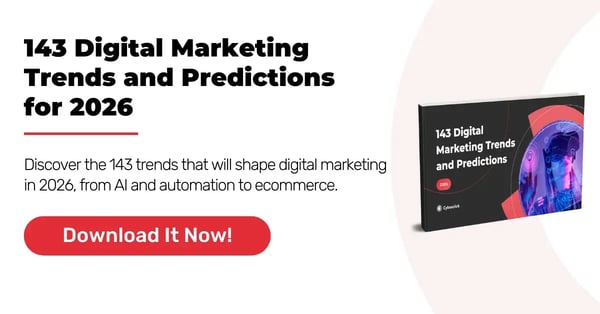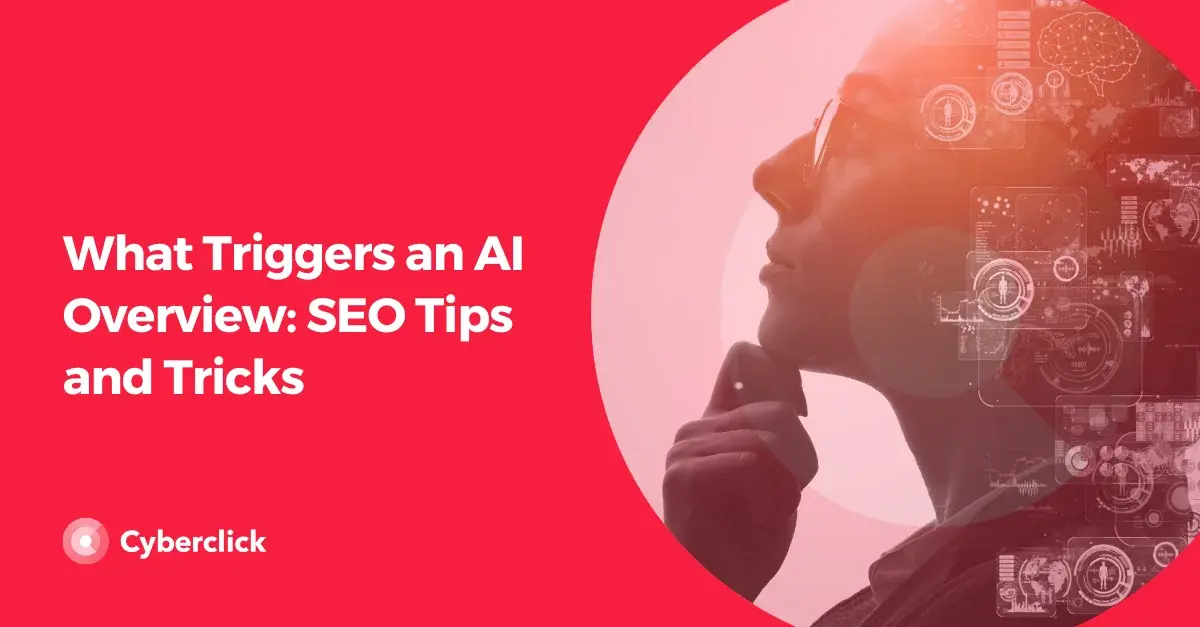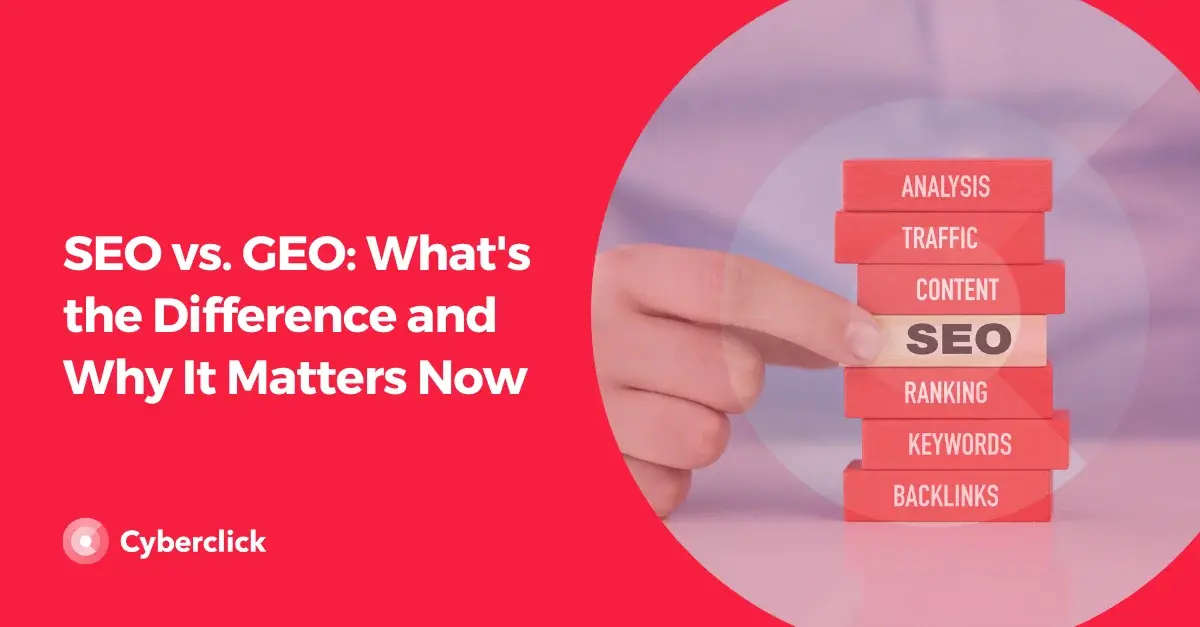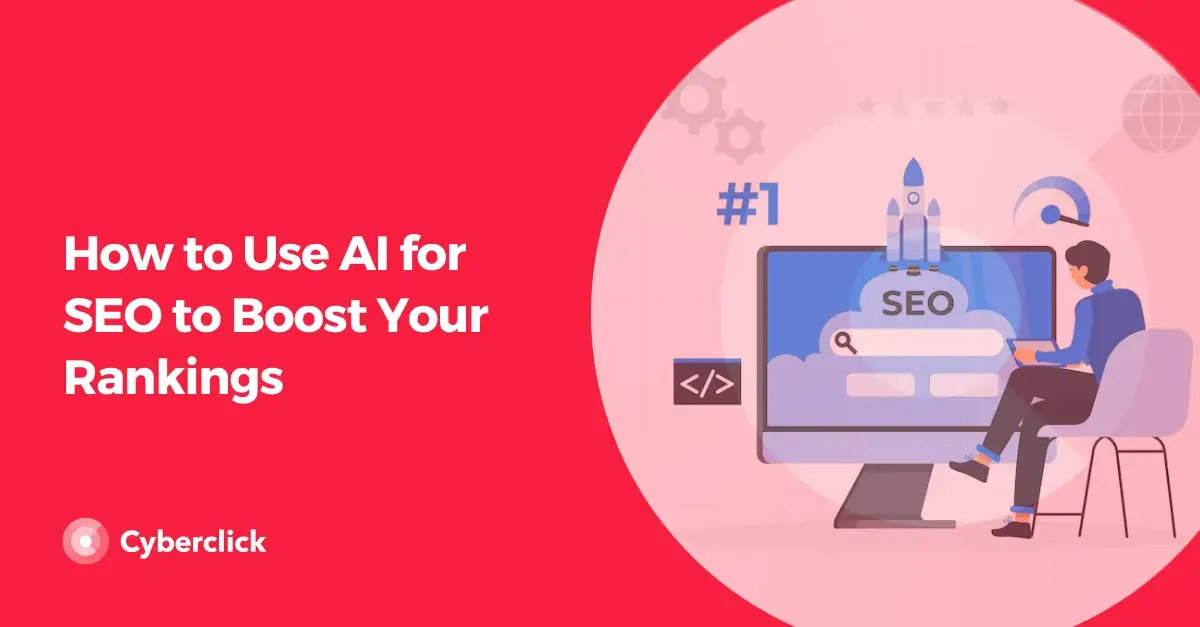SEO helps you to gain visibility online and increase your authority as a brand. However, it can also be a big headache, especially at the beginning as it's a strategy with medium to long term results. Be that as it may, it is something you need to understand in order to be successful both in search engine results and in different platforms or social networks.
Without further ado, let's look at the SEO trends for 2024! Stay tuned because some very interesting ones are coming up.

Master Core Web Vitals for Maximum Performance
Do you know what Core Web Vitals are? Let's start at the beginning.
Google's Core Web Vitals are a set of 3 metrics that are responsible for measuring the quality of the user experience on a website. The analysis is performed through algorithms and takes the following points into consideration:
- Cumulative Layout Shift (CLS): Measures unexpected layout changes that occur during web loading.
- Largest Contentful Paint (LCP): Measures the time it takes for the page to load and be visible to the user.
- First Input Delay (FID): Measures the time it takes for the page to respond to the user's first interaction.
A negative result in all or any of these will affect your Google ranking. However, Google announced that it is withdrawing this last metric to replace it with another one, as it considers that FID had some limitations.
The new metric is called Interaction to Next Paint (INP) and will officially be implemented in March 2024, so you may still be able to see the old metric in Google Search Console reports. In a nutshell, INP will measure the time it takes for a page to produce a visual change on the screen from the time the user interacts with it.
According to Google, the fact that a web page currently has a good FID does not mean that the INP will be positive. Therefore, it's time to get to work on this new metric that promises to be one of the most important SEO trends for 2024.
Artificial Intelligence for SEO Optimization
It is clear to all of us that AI is a great support for creating content in all kinds of formats (text, video, audio, images, etc.), designing strategies, and analyzing large amounts of data. But did you know that it can also be really useful for SEO optimization? That's right! And, in 2024, it is going to be used more than ever. SEO professionals can use this technology to get optimization tips and keywords according to market preferences and consumer behavior.
In short, SEO-oriented AI tools allow you to perform positioning tasks that are a bit more mechanical, such as searching for appropriate keywords, including them naturally in a given text, or performing web audits, among others.
Be Flexible with Structured Data
Structured data are codes in HTML format that tell search engines like Google how to interpret and display website information. They are important for SEO positioning because they help search engines understand the content of the pages.
Structured data is the key to the presence of rich snippets in search results. This means that instead of just seeing links to click on, you may also encounter images, carousels, or even complete text fragments. In 2024, changes are on the horizon, especially in the display of certain search results. Google has declared an upcoming alteration in the presentation of FAQs (the "More questions" section) and "How-to" results. Google is set to restrict the FAQ section to display answers solely from official, authoritative pages. Additionally, the section featuring instructions on how to perform tasks will only be visible in searches conducted on computers and won't appear on mobile devices.
Of course, as a Google Search Console user, you will notice all these changes as they are rolled out globally. This adjustment is likely to impact your SEO strategy, especially if it involves optimizing for FAQ and "How-to" snippets. Stay tuned for these updates, as they may influence your approach to search engine optimization.
Google Search Generative Experience Changes the Rules of Traditional SEO
Google Search Generative Experience is the company's new AI-powered search engine. With it, users will have a different experience when searching for information. However, it not only implies changes for users, but also for SEO strategies, which will have to adapt.
These are some of the changes that the new search engine will offer:
- Search without clicks: It will no longer be necessary to click on a page to find the information you are looking for. Google promises to offer a complete answer on the search page itself by gathering information from different sources. Did you know that in 2024, almost 50% of searches will not generate any clicks? This means that website traffic is in decline, at least on search engines.
- More pie for Google: It is also expected that more screen space will be devoted to search engine functionalities to the detriment of organic and paid results. This will mean that the space dedicated to them (especially organic results) will be increasingly contested and the SEO field will become more and more competitive.
Mobile-First Indexing
Another SEO trend for 2024 is mobile-first indexing. This will continue to be Google's primary method of ranking and crawling web pages. Therefore, as a brand you need to make sure that your website is adapted to these devices and offers the most satisfying experience possible to mobile users.
At this point, all websites should have a "responsive" design, meaning they should offer the same content regardless of the device on which they are opened. They should adapt to each device perfectly in terms of design and functionality.
Ensure Your Content Is Useful to Google
As you probably already know, Google uses automated ranking systems to order search results, rewarding those with reliable and useful information and positioning them better.
It is fairly common for Google to implement changes in its ranking system. These are the most recent ones:
- The ranking algorithm that classifies the usefulness of content has improved and it has become more demanding.
- Despite the fact that, in 2022, Google announced that it would reward content generated by and for people, in 2023 the "by" has disappeared from its guide. Therefore, this means that the content generated does not have to be created by people to rank well. Obviously, this is due to the rise of AI tools such as ChatGPT. Although Google used to be against this type of technology, it ended up moderating its position and accepting content created by AI as long as it is beneficial to users.
- Finally, the most important new feature! The content evaluation and ranking systems will now also take into account third-party content on a website, even if it is in specific directories of the page or in subdomains. This will curb the abuses known as "parasite SEO", a practice that consists of publishing content on a third-party website that has a high authority to improve ranking. This in itself is not bad, but the problem comes when it is used for surreptitious advertising, something that theoretically we are going to start seeing less of.
Increased Traffic from Voice Searches
Voice search is here to stay and, consequently, SEO is also going to start changing, since a written search is not performed in the same way as a voice search. When we ask a question orally, the words and expressions we use are not the same, so the keywords that a page has to use to appear as a result will not be the same either. Therefore, a brand's keyword strategy when creating content should also be oriented to voice searches.
This is why voice search is going to become one of the SEO trends for 2024 that positioning experts will have to pay more attention to. This is especially true when it comes to local searches, as 58% of voice search users use it to make queries about local businesses.
Long tail keywords are becoming increasingly popular, as they are the ones that are usually used when performing voice searches. These keywords are characterized by being very specific and tend to have a smaller volume of searches, but this seems to be changing.
Google Launches Discover on PC
Google Discover is nothing new. Until now, this functionality could be accessed from a smartphone in two ways: by swiping to the left on the main screen or by accessing the search engine and clicking on the asterisk. This section shows the user a mix of current news and evergreen articles.
Google's goal now is to make this section more adapted to users' previous searches, i.e. to their tastes, and to have a computer version as well.
At the time of writing, the PC version is still in the testing phase, but it is quite possible that it will be ready by 2024.
SERP Updates
We end the list of SEO trends for 2024 with 3 of the most important Google modifications to the search page results:
- Shopping Guide: This new feature is being developed for searches on mobile devices and aims to give users drop-down menus when searching for a product that show different features to help you in your search process. It may not have reached your location yet, but perhaps 2024 will be the year.
- Things to know: This feature displays a list of topics and questions that users typically search for when researching a topic on Google. Like the previous feature, it may not be ready in your country yet.
- Continuous scroll: You may have already seen this feature. When searching on Google, we no longer see at the bottom of each page of results a strip showing the number of pages there are and where we are. Instead, we can now see up to six pages of results simply by scrolling. On mobile, this is reduced to four before a "More" button appears. With this update, users are more likely to reach pages that are ranked lower, increasing traffic to them.
Responsable de la estrategia de contenidos y visibilidad en Cyberclick, con enfoque Allbound y especialización en posicionamiento SEO, GEO y automatización con IA. Gestión avanzada del CRM con HubSpot: base de datos, workflows, lead nurturing, scoring y reporting. Experiencia en marketing digital, comunicación corporativa y periodismo, uniendo estrategia, creatividad y tecnología para captar y convertir leads cualificados.
Responsible for content and brand visibility strategy at Cyberclick, with an Allbound approach and specialization in SEO, GEO (Generative Engine Optimization), and AI-powered automation. Advanced HubSpot CRM management: database segmentation, workflows, lead nurturing, scoring, and reporting. Background in digital marketing, corporate communications, and journalism—combining strategy, creativity, and technology to attract and convert qualified leads.






Leave your comment and join the conversation